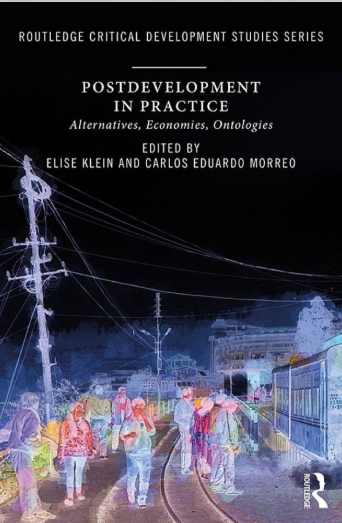Postdevelopment in Japan: Revisiting Yoshirou Tamanoi’s Theory of Regionalism [Publication]

The Global Asia Research Center is pleased to announce a recent publication of research by one of our members:
Yoshihiro Nakano ‘Postdevelopment in Japan: Revisiting Yoshirou Tamanoi’s Theory of Regionalism’ in Elise Klein and Carlos Eduardo Morreo (eds), Postdevelopment in Practice: Alternatives, Economies, Ontologies, 1st edition, London and New York: Routledge, 2019, pp. 37-51.

Published from the Routledge Critical Development Studies Series, Postdevelopment in Practice presents a novel approach to postdevelopment theory and its search for alternatives to development. Postdevelopment theory emerged in the early 1990s as a radical critique of the modern Western paradigm of development. Initially the debate focused on cultural and ecological consequences of development projects in the Global South. However, as humanity today faces multidimensional crises perpetrated by industrial overgrowth and the globalised society of consumers, it is of urgent necessity for postdevelopment theory to find a path of ecological transition and cultural change of the Global North.
From this perspective the book explores diverse possibilities of postdevelopment alternatives that can be found in marginal intellectual histories and local projects in both the Global North and the Global South. Contributors from different parts of the world reject the universalist approach to development and, in turn, introduces a pluriversal approach, highlighting different cosmovisions and political ontologies for alternatives to development. In Chapter 2, Dr. Nakano examines Yoshirou Tamanoi’s theory of regionalism as a precursor of postdevelopment in Japan. The article discusses Tamanoi’s attempt at reconceptualizing community in four aspects: a politics of the common good, an economics of commons, an aesthetics of human-scale lifeworld, and an ethics of future. Then it suggests a possible convergence of regionalism to a global project of epistemologies of the South, opening up a new research agenda for postdevelopment and degrowth.
Copies of this book chapter can be found via sites such as Taylor and Francis or Amazon.
